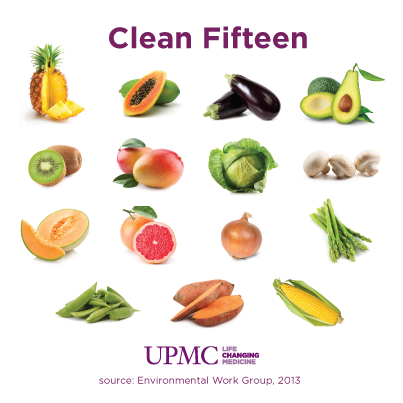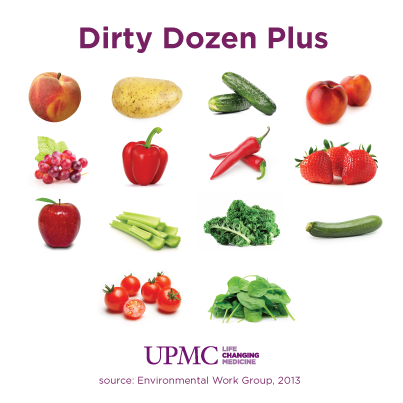Spring has arrived and with the new season comes organic produce at local farmers’ markets.
Choosing locally grown or organic foods may reduce pesticide exposures as smaller local farms generally apply organic principles. Plus, you can ask the farmer exactly what their practices are!
While it’s true that organics generally cost more, as demand goes up, the prices are coming down. Here are six benefits of buying organic or locally grown fruits and vegetables:
- Organic diets may expose families to fewer pesticides associated with human disease.
- Organic farming may have less environmental impact than conventional farming. Organic farming reduces soil and water contamination and increases biodiversity.
- Organic produce has been shown to be slightly higher in antioxidants.
- Buying locally grown helps the local economy.
- The American Academy of Pediatrics recommends reducing childhood exposures to pesticides. Early exposures may be linked to pediatric cancers, decreased cognitive function, and behavioral problems.
- Local farmers share their growing methods and often farm utilizing organic principles. Buying at farmer’s markets allows you to know who is growing your food and what their methods are.
The “Clean 15” list includes produce that is typically safe to consume washed and in non-organic form.
The “Dirty Dozen Plus” list includes produce that you should consider buying organic due to the amount of pesticide residues found in them.
Never Miss a Beat!
Subscribe to Our HealthBeat Newsletter!
Thank you for subscribing!
You can now select the specific newsletters you'd like to receive.
You are already subscribed.
Subscribe to more newsletters in our email preference center.
Sorry, an error occurred. Please try again later.
Get Healthy Tips Sent to Your Phone!
Editor's Note: This article was originally published on , and was last reviewed on .
About UPMC Magee-Womens
Built upon our flagship, UPMC Magee-Womens Hospital in Pittsburgh, and its century-plus history of providing high-quality medical care for people at all stages of life, UPMC Magee-Womens is nationally renowned for its outstanding care for women and their families.
Our Magee-Womens network – from women’s imaging centers and specialty care to outpatient and hospital-based services – provides care throughout Pennsylvania, so the help you need is always close to home. More than 25,000 babies are born at our network hospitals each year, with 10,000 of those babies born at UPMC Magee in Pittsburgh, home to one of the largest NICUs in the country. The Department of Health and Human Services recognizes Magee in Pittsburgh as a National Center of Excellence in Women’s Health; U.S. News & World Report ranks Magee nationally in gynecology. The Magee-Womens Research Institute was the first and is the largest research institute in the U.S. devoted exclusively to women’s health and reproductive biology, with locations in Pittsburgh and Erie.


